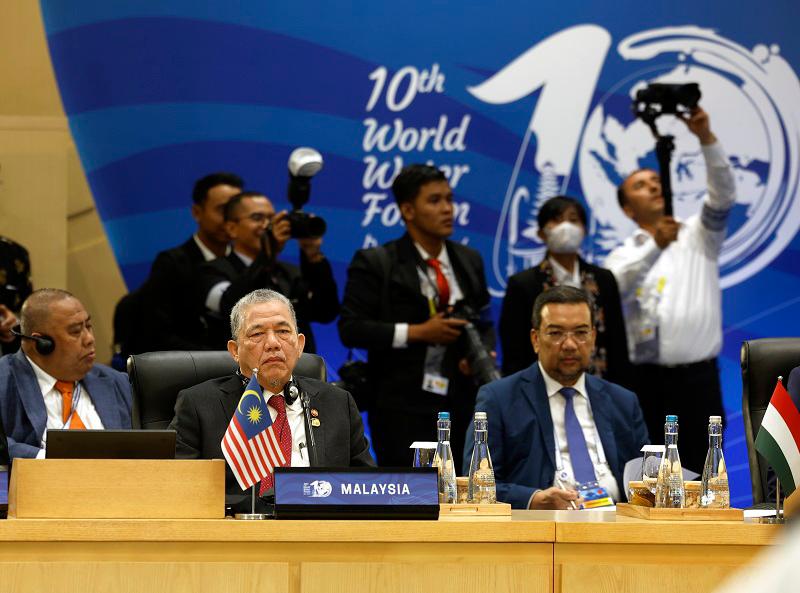BALI: Deputy Prime Minister and Minister of Energy Transition and Water Transformation, Datuk Seri Fadillah Yusof, joined world leaders at the 10th World Water Forum (WWF) high-level leadership meeting, which commenced here today.
The meeting was attended by leaders from Fiji, France, Hungary, Morocco, the Netherlands, Papua New Guinea, Sri Lanka, Tajikistan, and the United Arab Emirates. Representatives from global organisations, including the United Nations General Assembly and the World Water Council (WWC), were also present.
Upon their arrival at the Bali International Convention Centre in Nusa Dua, Fadillah and other dignitaries were welcomed by President Joko Widodo, better known as Jokowi. The opening ceremony was also attended by SpaceX owner Elon Musk.
In his opening speech, Jokowi expressed hope for continuous global collaboration to strengthen commitment to addressing global water challenges and preserving water for future prosperity.
“Of the 72 per cent of the earth’s surface covered by water, only one per cent is accessible and useable for drinking water and sanitation needs. By 2050, 500 million small farmers, who contribute 80 per cent of the world’s food supply, are predicted to be most vulnerable to drought,” he said.
Jokowi noted that Indonesia, with 65 per cent of its area covered by water, has rich local wisdom in water management, from coastlines and riverbanks to lakesides.
“In Indonesia, collaboration has been the key to success in restoring the Citarum River in West Java as well as the development of green energy, floating solar panels in the Cirata dam, the largest in Southeast Asia and the third largest in the world,“ he said.
Meanwhile, Musk expressed optimism about future water and energy solutions for the world. He praised Indonesia’s mangrove reforestation efforts and emphasised the need to avoid complacency. He also discussed the earth’s water abundance, suggesting that aliens might call our planet “Water” instead of “Earth,” and argued that the water crisis is solvable with ongoing desalination advancements.
“Although desalination and water transport are necessary, desalination has become very inexpensive. Therefore, the availability of fresh water is mainly a matter of energy and transport,” he added.
The WWF, held every three years, is co-organised by the WWC and the host country. This year’s event, themed “Water for Shared Prosperity,” runs from May 18 to 21.
The forum aims to foster global cooperation and promote actions in identifying current issues related to water management through integrated solutions. Its focus areas include water conservation, clean water, food and energy security, and disaster mitigation.









